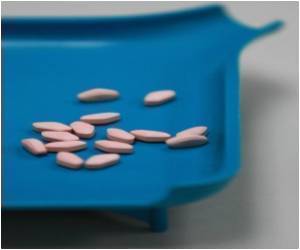A diabetes drug has genetic links, which when studied, could lead to new and better treatment strategies, claim scientists.

Dr Ewan Pearson, Professor Colin Palmer and colleagues used data from patients with diabetes and blood samples donated by 20,000 people.
Results revealed that the gene ATM and one particular chromosome determined how well patients responded to metformin.
ATM is a gene that is known to be involved in the DNA damage response system of cells, a mechanism that if faulty can lead to the development of cancer, Pearson said.
"We were expecting to find genes involved in blood sugar regulation so the finding that ATM is involved in metformin response was totally unexpected," the Scotsman quoted Pearson as saying.
"Our finding therefore draws together mechanisms that protect against cancer and lower blood sugar, suggesting a new area for diabetes drug development," he added.
Advertisement
The research was published in the journal Nature Genetics.
Advertisement














